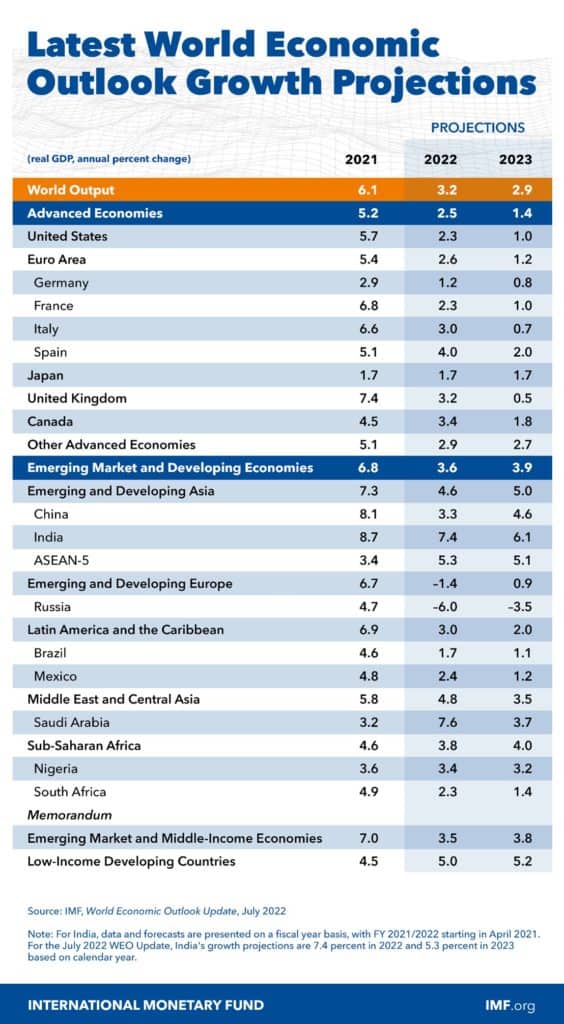Global economic growth is expected to slow from last year’s 6.1% to 3.2% this year and 2.9% next year, downgrades of 0.4 and 0.7 percentage points from April, said IMF recently.
The global economy, still reeling from the pandemic and Russia’s invasion of Ukraine, is facing an increasingly gloomy and uncertain outlook, the fund noted, adding that many of the downside risks flagged in our April World Economic Outlook have begun to materialise.
Higher-than-expected inflation, especially in the US and major European economies, is triggering a tightening of global financial conditions, IMF observed.
China’s slowdown has been worse than anticipated amid COVID-19 outbreaks and lockdowns, and there have been further negative spillovers from the war in Ukraine, the organisation added.
As a result, global output contracted in the second quarter of this year, IMF said.

In the United States, reduced household purchasing power and tighter monetary policy will drive growth down to 2.3% this year and 1% next year, according to IMF.
In China, further lockdowns, and the deepening real estate crisis pushed growth down to 3.3% this year—the slowest in more than four decades, excluding the pandemic, IMF noted.
In the euro area, growth is revised down to 2.6% this year and 1.2% in 2023, reflecting spillovers from the war in Ukraine and tighter monetary policy, IMF observed.
Rising global inflation
Despite slowing global economic growth, inflation has been revised up, in part due to rising food and energy prices, according to the fund.
Inflation this year is anticipated to reach 6.6% in advanced economies and 9.5% in emerging market and developing economies—upward revisions of 0.9 and 0.8 percentage points respectively—and is projected to remain elevated longer, IMF said.
Inflation has also broadened in many economies, reflecting the impact of cost pressures from disrupted supply chains and historically tight labor markets, the fund added.




